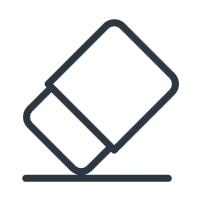创新教学方法:利用学习用品与地球仪的教学优势
两亩地
2024-12-19 23:27:51
0次
创新教学方法:利用学习用品与地球仪的教学优势
教学方法的不断创新,一直是教育领域的永恒追求。为了使学生在学习中得到更多的实践和乐趣,许多教育工作者不断尝试探索新的教学工具和方法。学习用品与地球仪的结合,是其中一种独特而富有创意的教学方式,能够有效提升学生的理解和掌握能力。
一、学习用品的教学优势
学习用品是学生们日常学习过程中不可或缺的物品,如笔、纸、尺子、计算器等。这些看似简单的物品,其实在教学中具有巨大的潜力。首先,学习用品能够提供实操的机会,让学生通过动手操作来理解和掌握知识。例如,数学课堂上可以通过绘制图形和制作表格来培养学生的逻辑思维能力和空间感知能力。此外,使用不同颜色和样式的笔和纸能够帮助学生更加生动地表达他们的思考和观点。
二、地球仪的教学优势
 三、结合学习用品与地球仪的创新教学方法
将学习用品与地球仪结合起来,可以创造一种全新的教学方法。例如,教师可以让学生使用尺子或地图尺测量地球仪上的某个区域或国家,来加深他们对地名的了解和熟悉。还可以鼓励学生用笔记的方式记录他们学习到的信息,这不仅能巩固知识记忆,还能提高学生的手写能力。在讲述一个特定的话题时,可以要求学生结合笔纸工具绘制地图或示意图,如使用颜色或符号标记重要信息。此外,利用计算机软件或APP来制作3D模型或虚拟地球仪也是一个不错的选择,可以让学生在虚拟环境中进行探索和学习。
四、实践应用
在具体的教学过程中,教师们可以根据课程内容和学生的实际情况灵活运用这种教学方法。例如,在教授世界地理时,教师可以先让学生用地球仪找到各个国家的位置和形状,然后使用地图尺测量距离或面积,最后用笔纸工具绘制出简单的地图或示意图。在这个过程中,学生不仅学习了地理知识,还锻炼了他们的观察力、分析力和动手能力。
五、翻译成英文:
Innovative Teaching Methods: Leveraging the Educational Advantages of Learning Supplies and Globe
三、结合学习用品与地球仪的创新教学方法
将学习用品与地球仪结合起来,可以创造一种全新的教学方法。例如,教师可以让学生使用尺子或地图尺测量地球仪上的某个区域或国家,来加深他们对地名的了解和熟悉。还可以鼓励学生用笔记的方式记录他们学习到的信息,这不仅能巩固知识记忆,还能提高学生的手写能力。在讲述一个特定的话题时,可以要求学生结合笔纸工具绘制地图或示意图,如使用颜色或符号标记重要信息。此外,利用计算机软件或APP来制作3D模型或虚拟地球仪也是一个不错的选择,可以让学生在虚拟环境中进行探索和学习。
四、实践应用
在具体的教学过程中,教师们可以根据课程内容和学生的实际情况灵活运用这种教学方法。例如,在教授世界地理时,教师可以先让学生用地球仪找到各个国家的位置和形状,然后使用地图尺测量距离或面积,最后用笔纸工具绘制出简单的地图或示意图。在这个过程中,学生不仅学习了地理知识,还锻炼了他们的观察力、分析力和动手能力。
五、翻译成英文:
Innovative Teaching Methods: Leveraging the Educational Advantages of Learning Supplies and Globe
 Firstly, learning supplies are indispensable items in students' daily learning process, such as pens, paper, rulers, calculators, etc. These seemingly simple items actually have great potential in teaching. Learning supplies can provide opportunities for hands-on practice, allowing students to understand and master knowledge through practical operations. For example, in math class, students can develop their logical thinking and spatial perception skills by drawing graphs and making tables. Additionally, using different colors and styles of pens and paper can help students express their thoughts and viewpoints more vividly.
Secondly, the globe is a teaching tool used to display the characteristics of the Earth's surface, with vivid and image-based features. In geography teaching, the globe can help students better understand and grasp basic knowledge such as the shape, size, latitude, and longitude of the Earth. By observing various geographical information on the globe, such as countries, cities, rivers, etc., students can intuitively understand the geographical environment of various parts of the world. Furthermore, the globe can also be used to simulate and display complex geographical phenomena such as climate change and economic development.
Thirdly, combining learning supplies with the globe can create a new teaching method. For example, teachers can ask students to use rulers or map rulers to measure a specific area or country on the globe to deepen their understanding of place names. Students can also be encouraged to take notes to record the information they learn, which not only strengthens knowledge retention but also improves their handwriting skills. When discussing a specific topic, students can be required to use writing tools to draw maps or schematic diagrams, using colors or symbols to mark important information. Additionally, using computer software or apps to create 3D models or virtual globes is also a good choice that allows students to explore and learn in a virtual environment.
In practical teaching, teachers can flexibly apply this teaching method according to the course content and the actual situation of students. For example, when teaching world geography, teachers can first ask students to find the location and shape of various countries using the globe, then use map
Firstly, learning supplies are indispensable items in students' daily learning process, such as pens, paper, rulers, calculators, etc. These seemingly simple items actually have great potential in teaching. Learning supplies can provide opportunities for hands-on practice, allowing students to understand and master knowledge through practical operations. For example, in math class, students can develop their logical thinking and spatial perception skills by drawing graphs and making tables. Additionally, using different colors and styles of pens and paper can help students express their thoughts and viewpoints more vividly.
Secondly, the globe is a teaching tool used to display the characteristics of the Earth's surface, with vivid and image-based features. In geography teaching, the globe can help students better understand and grasp basic knowledge such as the shape, size, latitude, and longitude of the Earth. By observing various geographical information on the globe, such as countries, cities, rivers, etc., students can intuitively understand the geographical environment of various parts of the world. Furthermore, the globe can also be used to simulate and display complex geographical phenomena such as climate change and economic development.
Thirdly, combining learning supplies with the globe can create a new teaching method. For example, teachers can ask students to use rulers or map rulers to measure a specific area or country on the globe to deepen their understanding of place names. Students can also be encouraged to take notes to record the information they learn, which not only strengthens knowledge retention but also improves their handwriting skills. When discussing a specific topic, students can be required to use writing tools to draw maps or schematic diagrams, using colors or symbols to mark important information. Additionally, using computer software or apps to create 3D models or virtual globes is also a good choice that allows students to explore and learn in a virtual environment.
In practical teaching, teachers can flexibly apply this teaching method according to the course content and the actual situation of students. For example, when teaching world geography, teachers can first ask students to find the location and shape of various countries using the globe, then use map
地球仪是一种用于展示地球表面特征的教具,具有生动形象的特点。在地理教学中,地球仪可以帮助学生更好地理解和掌握地球的形状、大小、经纬度等基本知识。同时,通过观察地球仪上的各种地理信息,如国家、城市、河流等,学生可以更加直观地了解世界各地的地理环境。此外,地球仪还可以用于模拟和展示气候变化、经济发展等复杂的地理现象。

【地球仪】智能AR地球仪正版学生用初中生儿童启蒙发光玩具3d凹凸立体磁悬浮摆件男孩女童生日礼物旋转星空投影灯小夜灯售价:53.00元 领券价:53元 邮费:0.00
The continuous innovation of teaching methods has always been an eternal pursuit in the field of education. In order to provide students with more practical and enjoyable learning experiences, many education workers are constantly exploring new teaching tools and methods. The combination of learning supplies and the globe is a unique and creative teaching approach that can effectively enhance students' understanding and mastery of knowledge.

【装饰摆件】轻奢高档透明地球仪客厅酒柜电视摆件柜办公室创意桌面家居装新款售价:57.66元 领券价:57.66元 邮费:0.00
相关内容
热门资讯
儿童学习必备:如何选择合适的地...
摘要:选择适合儿童的地球仪和文具至关重要,应考虑用途、尺寸、质量、精度和孩子年龄等因素。铅笔、橡皮、...
探索未知的地球:地球仪在科学学...
地球仪在科学学习中价值巨大,特别是地理教学和科学研究中。其以立体形式展示地球信息,可直观了解地理特征...
"为学习添彩:十种必选的学习用...
文章介绍十种必选学习用品,如铅笔、钢笔、彩色笔等,并探讨它们与地球仪的配合使用方法,如地图与地球仪印...
学习用品中的佼佼者:多功能地球...
本文为多功能地球仪的选购指南,重点从尺寸材质、功能特点、精确度和质量、品牌价格等方面介绍如何挑选。地...
"科技与传统并存:10款顶级学...
科技与传统结合,10款学习用品与地球仪搭配,如电子书、平板、智能笔等,提供直观、互动的地理学习体验,...
探索地球奥秘:从学习用品到地球...
旅程探索地球奥秘:从学习用品至地球仪,深入发现未知,了解地形、气候和地球运行规律,挖掘无尽奥秘。地球...
地球仪:探索世界的窗口
地球仪作为探索世界的窗口,不仅提供地理信息,还是教学和艺术创作的宝贵资源,并在日常生活、旅行规划、商...
探索学习用品的新世界:地球仪与...
本文探讨了地球仪的魅力、在日常生活和教育、旅游、科研等领域的作用及未来发展。地球仪作为学习用品,融合...
学习者的好助手:全面了解学习用...
文章概述了学习用品如文具和电子设备的重要性,以及地球仪在了解地理环境方面的作用。学习用品可提高学习效...
环保学习用品:绿色生活从我做起
摘要:环保学习用品指采用环保材料制成的、对环境影响小的学习用具。选择环保学习用品可保护环境、培养环保...
